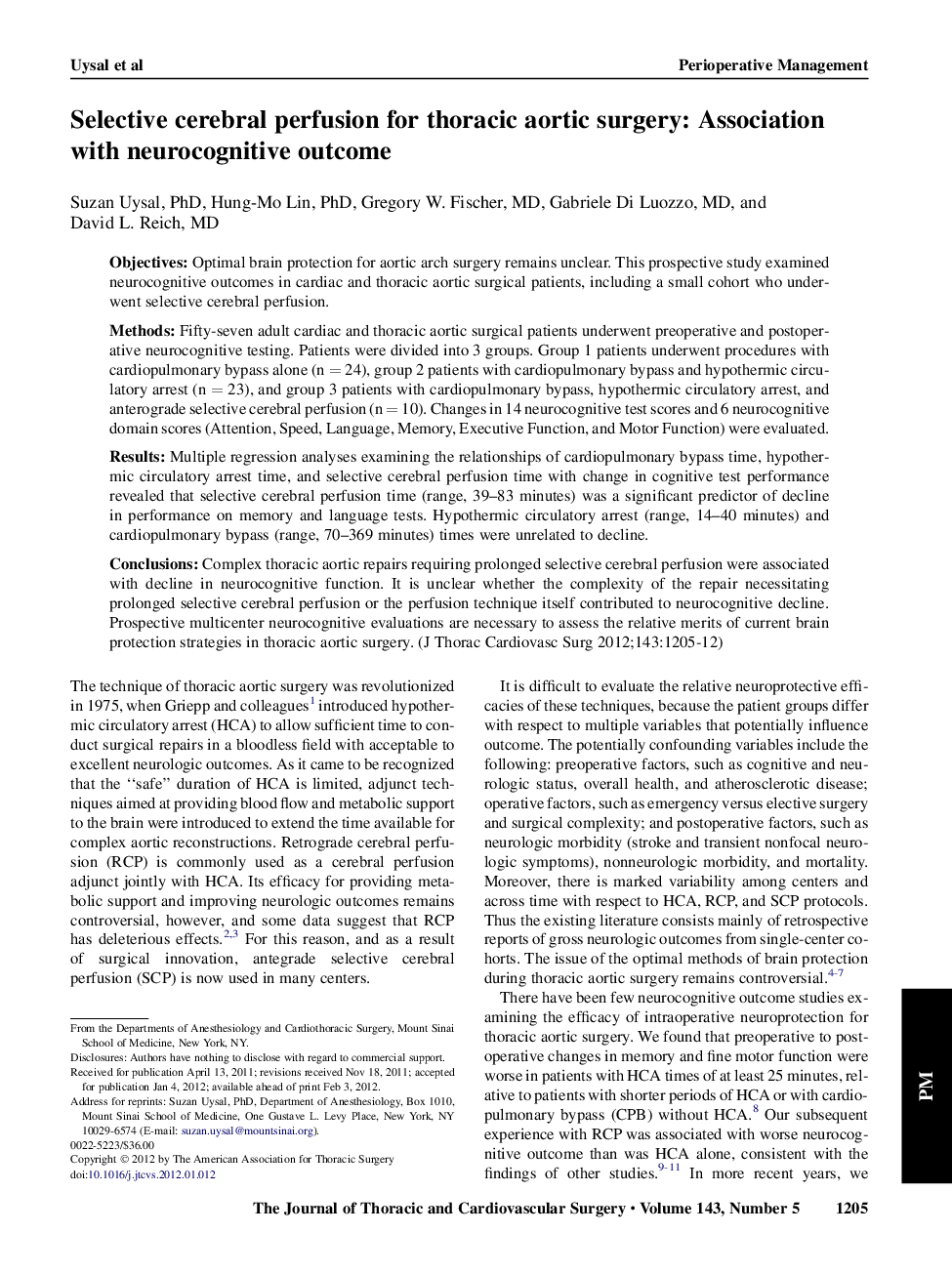| کد مقاله | کد نشریه | سال انتشار | مقاله انگلیسی | نسخه تمام متن |
|---|---|---|---|---|
| 2982169 | 1578636 | 2012 | 8 صفحه PDF | دانلود رایگان |

ObjectivesOptimal brain protection for aortic arch surgery remains unclear. This prospective study examined neurocognitive outcomes in cardiac and thoracic aortic surgical patients, including a small cohort who underwent selective cerebral perfusion.MethodsFifty-seven adult cardiac and thoracic aortic surgical patients underwent preoperative and postoperative neurocognitive testing. Patients were divided into 3 groups. Group 1 patients underwent procedures with cardiopulmonary bypass alone (n = 24), group 2 patients with cardiopulmonary bypass and hypothermic circulatory arrest (n = 23), and group 3 patients with cardiopulmonary bypass, hypothermic circulatory arrest, and anterograde selective cerebral perfusion (n = 10). Changes in 14 neurocognitive test scores and 6 neurocognitive domain scores (Attention, Speed, Language, Memory, Executive Function, and Motor Function) were evaluated.ResultsMultiple regression analyses examining the relationships of cardiopulmonary bypass time, hypothermic circulatory arrest time, and selective cerebral perfusion time with change in cognitive test performance revealed that selective cerebral perfusion time (range, 39–83 minutes) was a significant predictor of decline in performance on memory and language tests. Hypothermic circulatory arrest (range, 14–40 minutes) and cardiopulmonary bypass (range, 70–369 minutes) times were unrelated to decline.ConclusionsComplex thoracic aortic repairs requiring prolonged selective cerebral perfusion were associated with decline in neurocognitive function. It is unclear whether the complexity of the repair necessitating prolonged selective cerebral perfusion or the perfusion technique itself contributed to neurocognitive decline. Prospective multicenter neurocognitive evaluations are necessary to assess the relative merits of current brain protection strategies in thoracic aortic surgery.
Journal: The Journal of Thoracic and Cardiovascular Surgery - Volume 143, Issue 5, May 2012, Pages 1205–1212